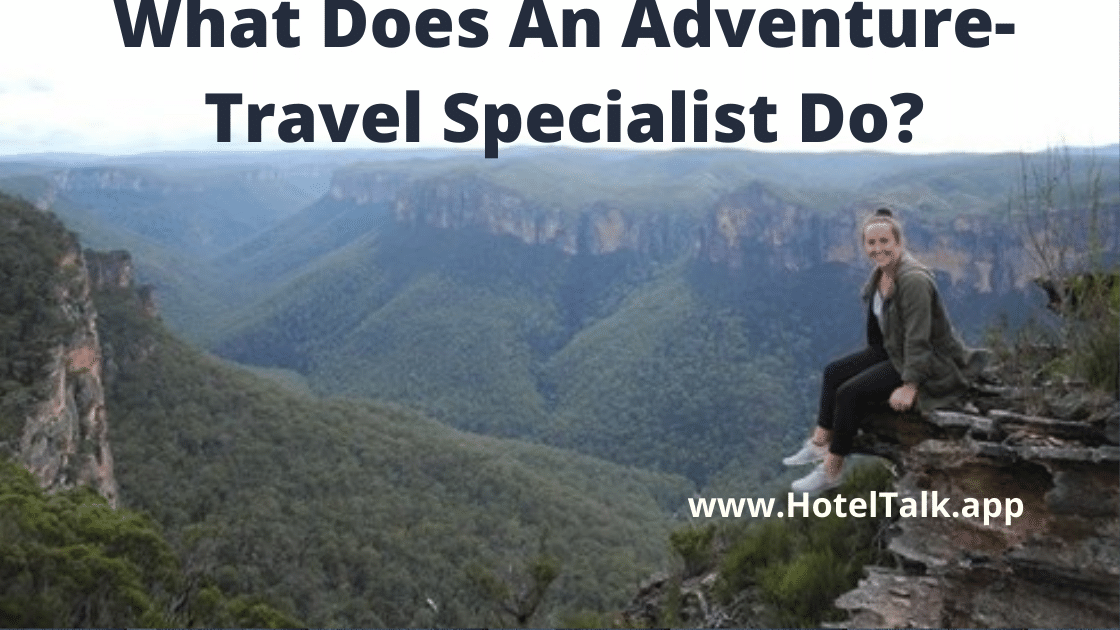Role of An Adventure Travel Specialist
Depending upon where he or she works, an average day for an adventure-travel specialist might be anything from planning tours in the comfort of an air-conditioned office to leading a safari through southern Africa or a cultural expedition through Mongolia.
Adventure travel is one of the fastest growing areas of specialization within the travel industry. Adventure-travel specialists plan—and may lead—tours of unusual, exotic, remote, or wilderness locations. Almost all adventure travel involves some physical activity that takes place outdoors. Sometimes adventure travel is split into two different categories: soft adventure and hard adventure. Hard adventure requires a fairly high degree of commitment from participants, as well as advanced skills.
A hard-adventure traveler might choose to climb Yosemite’s El Capitan, raft the Talkeetna River in Alaska, or mountain bike through the logging trails in the Columbia River Gorge. Soft-adventure travel, on the other hand, requires much less physical ability and is usually suitable for families. Examples of this kind of travel might be a guided horseback ride through the Rocky Mountains, a Costa Rican wildlife-viewing tour, or a hot-air-balloon ride over Napa Valley, California. Other types of soft adventure might include trips to explore the culture and natural environments of a country or region.
Adventure-travel specialists are the travel professionals who plan, develop, and lead these types of tours. Some work strictly in an office environment, planning trip itineraries; making reservations for transportation, activities, and lodging; and selling tours to travelers. Others, typically called outfitters, work in the field, overseeing the travelers and guiding the tour activities. In some cases, the adventure specialist both plans the logistics of the trip and guides it. For every adventure tour that takes place, numerous plans must be made. Travelers who purchase a tour package expect to have every arrangement handled for them, from the time they arrive at the starting point of the trip. That means that ground transportation, accommodations, and dining must all be planned and reserved. Each day’s activities must also be planned in advance, and arrangements need to be made with adventure outfitters to supply equipment and guides.
The trip planner calls lodges, hotels, or campgrounds to make reservations for the tour group and arranges ground transportation, which may be vans, buses, or jeeps, depending upon the particular trip. He or she also works with the adventure outfitters who will actually lead the tour group through the planned activities and supply the necessary equipment.
Some companies serve as adventure-travel brokers, selling both tours that they have developed and tours that have already been packaged by another company. Travel specialists are responsible for marketing and selling these tours. They give potential customers information about the trips offered, usually over the phone or via email. When a customer decides to purchase a tour package, the travel specialist takes the reservation and completes any necessary paperwork. Depending upon their position in the company and their level of responsibility, adventure travel planners may decide where and how to advertise their tours.
Working as an adventure travel outfitter or guide is very different from working as an adventure travel planner or broker. The duties for these individuals vary enormously, depending upon the type of tours they lead. Adventure tours can take place on land, on water, or in the air. On a land adventure trip, guides may take their tour groups rock climbing, caving, mountain biking, wilderness hiking, horseback riding, or wildlife viewing. They may take them to a variety of cultural sites such as the World Heritage site of Luang Prabang in Laos, Etosha National Park in Namibia, or Machu Picchu or the sandy ruins of Chan Chan in Peru. On a water trip, they may go snorkeling, scuba diving, surfing, kayaking, whitewater rafting, or canoeing. Air adventures include skydiving, parasailing, hang gliding, bungee jumping, and hot air ballooning.
Whatever the nature of the trip, guides are responsible for overseeing the group members’ activities and ensuring their safety. They may demonstrate activities, help with equipment, or assist a group member who is having difficulty. In many cases, where travelers are interested in the scenery, geography, local peoples, wildlife, or history of a location, guides serve as commentators, explaining the unique aspects of the region as the group travels.
Guides are also responsible for helping tour group members in the case of an emergency or unplanned event. Depending upon the nature of their tour, they must be prepared to deal with injuries, dangerous situations, and unusual and unplanned happenings. Essentially, it is the guide’s responsibility to ensure that tour group members have a safe, memorable, and enjoyable trip.
